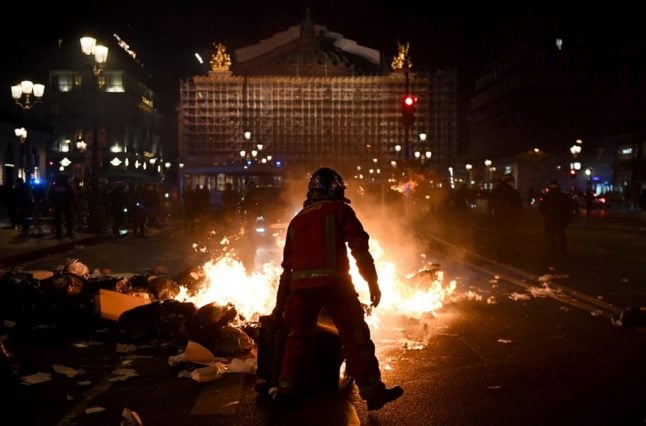A multi-party vote of no-confidence in French Prime Minister Elisabeth Borne’s government was defeated by just nine votes on Monday evening.
The motion brought by the centrist Liot coalition garnered 278 votes in the 577-seat National Assembly, just nine short of the necessary 287 MPs needed to topple the government.
READ ALSO What does the no-confidence vote mean for Macron and for France?
Following that first vote, France’s Assemblée Nationale voted on a second no-confidence motion brought by the far-right National Rally (RN) seen as less dangerous for the government.
Unlike the first motion the second brought by the far-right party was overwhelmingly rejected by parliament.
Both motions of no-confidence were sparked by the decision of the government to use Article 49.3 of the constitution to force through highly controversial reforms of the pension system without a vote in the lower house, the Assemblée Nationale.
The decision sparked a weekend of protests – some violent – across France.
Immediately after the vote, MPs from the leftist Nupes alliance brandished signs saying ‘RIP’ and ‘gather in the streets’.
The no-confidence vote was tabled by the small parliamentary group known as Liot, largely composed of MPs from France’s overseas territories and Corsica and attracted support from both the Leftist group in parliament and the far-right Rassemblement National.
However with both Macron’s centrist alliance Ensemble and some of the centre-right Les Républicains not supporting the motion, it failed to gather the necessary votes – although with a margin of only none votes it is the closest shave yet for Macron’s party, which does not have an overall majority in parliament.
Borne had signalled before the vote that will meet the leaders of all the parliamentary groups on Monday evening.
After the news of the vote broke, demonstrations began in several towns and cities around France.
At least 70 people were arrested in Paris, with bins and street furniture set on fire in several areas.
Après s’être déplacés de Place Vauban vers Saint-Lazare, de petits groupes de manifestants se rapprochent de l’Opéra. Plusieurs feux de poubelles allumés rue Auber. #ReformedesRetraites @LeParisien_75 pic.twitter.com/gXcVeeZ7pT
— Auguste Canier (@gustocanier) March 20, 2023
Shortly after the vote, a protest of several hundred people began in the Place Vauban, calling for Emmanuel Macron’s resignation.
🔴 ALERTE – Manifestation sauvage en cours contre le résultat de la motion de censure.
« MACRON DÉMISSION ! » pic.twitter.com/LJW5Qb17Qw
— Clément Lanot (@ClementLanot) March 20, 2023



 Please whitelist us to continue reading.
Please whitelist us to continue reading.
Member comments